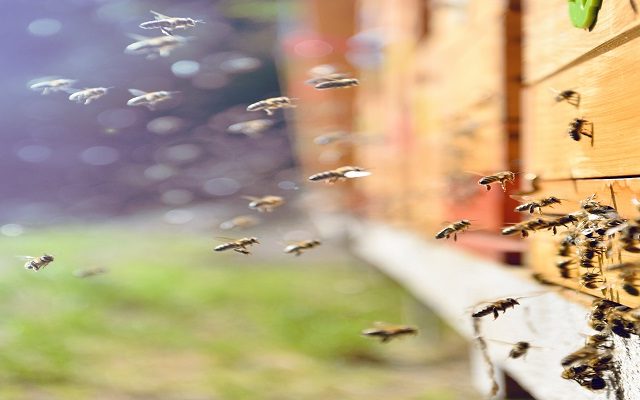Land Business Update | Week Commencing 27th September
Welcome to our update on key land management, farming, planning and energy issues.
FARMING
Gene-editing of plants for research purposes to be allowed in England
The UK government will introduce regulations by the end of 2021 to allow scientists to conduct field trials of gene-edited crops. It will also propose new legislation which changes the definition of genetically modified organisms ‘to exclude organisms that have genetic changes that could have been achieved through traditional breeding or which could occur naturally’. The legislation will only apply to plants in the first instance but could be extended to animals and microbes. The proposals are, unsurprisingly, very controversial and highly contested.
Fruit and vegetable growers reducing their output in 2022 due to labour shortages
A NFU survey found that almost a third of vacancies for seasonal workers were unfilled, which is a record high. The growers say that the pilot Seasonal Agricultural Workers Scheme, which enables up to 30,000 overseas workers to work in the UK, needs to be doubled for 2022 and made permanent. The issue has also been exacerbated by shortages of logistics workers, meaning crops have not been able to be transported to cold storage or retailers. British Summer Fruits, which is an industry group, says that the percentage of returning workers from the EU has fallen substantially below expected levels and is expected to fall further in 2022.
Farm wage review advice
Farmers in England will need to weigh up an even bigger range of factors than normal this year in terms of working out a fair wage rise for farmworkers. Minimum pay levels for farmworkers continue to be set by official pay review bodies in Northern Ireland, Scotland and Wales. However, in England the Agricultural Wages Board (AWB) was disbanded in 2013, leaving employers with no formal figures on which to base their annual pay reviews, which traditionally take effect from 1 October. Each year, Strutt & Parker examines key market indicators, such as what has been agreed by the continuing AWBs, the rate of inflation and the outcome of public sector pay awards.
As a bare minimum, employers need to be checking that they are compliant with minimum wage legislation. The National Living Wage rose by 2.18% in April 2021 to £8.91/hr, meaning that a standard agricultural worker (Grade 2 Equivalent) must not be paid less than this hourly rate. This also now applies for a worker over 23 years, when previously it was over 25 years. Their wage will also have to be increased again in the spring if the NLW is increased then.
However, given the ongoing challenge the sector faces in attracting and retaining skilled workers, it is important that employees feel appropriately rewarded for their efforts. Good people can make all the difference to the success of a farm – there is a clear link between successful businesses and a highly skilled, motivated team. There are many factors that contribute to achieving this, but an important part is maintaining a fair financial reward structure. While farmers are facing the first year of reductions to Basic Payments and input prices have also risen sharply in some areas, commodity prices are relatively strong. These are all factors which will need weighing up against each other.
For advice on wage reviews for farm and estate workers contact your local rural office.
Wales’ new Farm Support Scheme
The Welsh government has made some announcements on its timeline to design and launch its post-Brexit farm support scheme:
- The Agriculture Bill and the draft of the Sustainable Farming Scheme (SFS) will be published in 2022.
- A final consultation on the details of and transition to the SFS will be launched in spring 2023.
- The SFS is expected to be launched in January 2025 and seems to be primarily designed to address climate change and biodiversity loss. Payment rates are yet to be announced.
- A new woodland creation scheme will be launched in 2022 (to be part of SFS later on).
- Some current schemes and programmes will be extended to 2023. This includes the Basic Payment Scheme (subject to funding from the UK government), the Farming Connect programme (extended to March 2023) and Glastir Advanced, Commons and Organic contracts (extended to December 2023).
Environmental Land Management – National Audit Office report highlights challenges
The NAO has published its second report on ELM and, while there are some positives and improvements since the first report in 2019, it largely highlights concerns about Defra’s ability to deliver the ELM schemes successfully. The top five points we took from the report are:
1. Defra has not finalised the objectives for ELM, which it claims it can’t do until the government has passed the Environment Bill and made key decisions about its approach to meeting UK carbon budget targets. Once agreed, the objectives will need to be prioritised and a monitoring plan agreed.
2. Defra’s current high-level plan for delivering ELM beyond March 2022 is incomplete.
3. To date, ELM is a story of scaling back the number of farmers involved in pilots and of delays (both inside Defra and for land managers). For example, Defra has significantly scaled back the scope of SFI2022 compared with what was set out in its Agricultural Transition Plan document (published in November 2020); the initial focus will now be largely limited to soil management.
4. Significant risks remain to SFI2022 delivery, particularly around staff resources and the lack of detailed planning beyond 2021. The introduction of SFI2022 means that a live scheme is being introduced at scale with little time to learn from the pilot.
5. Defra aims to almost halve the administration costs of ELM compared with current agri-environment schemes. Defra’s review of whether this is achievable should have been complete in July 2021 but has been delayed due to lack of resources and the complexity of establishing baselines.
ENVIRONMENT
New group to advise the Scottish Government on environmental issues
The new Environmental Council will present their proposed work areas and future plans in a report at COP26. We are delighted that Ece Ozdemiroglu of eftec, who we collaborate with on natural capital accounting, is a member of the group.
Consultation on the ‘cautious’ release of beavers into the wild in England
Under the proposals, applications for licences to release beavers would need to meet specified criteria, including demonstrating positive stakeholder engagement and local buy in, and proof that a comprehensive assessment has been undertaken of the impacts on surrounding land. The consultation follows a number of successful reintroductions, with claims that the beavers have enhanced wildlife, created wetland habitats and reduced flood risk in catchments.
FORESTRY
Tree Health Pilot open for applications in England
The pilot scheme provides grants to remove and replace diseased trees in woodlands, hedgerows or by roads. The scheme will initially focus on trees and woodland affected by ash dieback, phytophthora ramorum in larch or sweet chestnut, sweet chestnut blight, and spruce with or at risk of spruce bark beetle. The pilot is open to 100 groups and individuals in the North West, West Midlands, South East and London. Landowners who think they are eligible for the scheme can directly submit expressions of interest. We have written a blog about the scheme, which is available on our Rural Hub.
PROPERTY AND RURAL ECONOMY
Communities can get funding to develop community led housing proposals
The Community Housing Fund Revenue Programme is a £4m fund available to pay for pre-development work so that schemes can complete the work required to progress towards submitting a planning application, submitting a capital funding bid or getting to start on site. The fund is open for applications now but work funded by the Programme must be completed by the end of March 2022. It is aimed at schemes which can prove their deliverability and are at the later stages of pre-development.
The Local Shop Report 2021
This report, from the Association of Convenience Stores, covers key facts about the growing UK convenience sector (independent retailers and multiple stores) and makes the point that these shops provide considerable positive benefits to local communities. The sector represents over a fifth of the total grocery market and had sales of £43bn in the last financial year, with £10bn in gross value added. It employs over 390,000 workers and £534m of investments were made in it in the past year. The total value of sales are expected to grow by 9% by 2024 from 2021 values. Product categories with the most sales are food products (52%), followed by tobacco and E-cigarettes (21%) and alcohol (18%). https://www.acs.org.uk/research/local-shop-report






